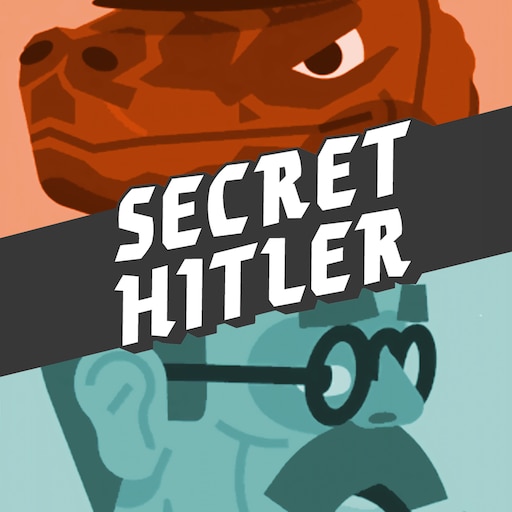In the realm of board games, few titles have managed to blend the art of social interaction with strategic gameplay as seamlessly as “Secret Hitler.” Created by Goat, Wolf, & Cabbage LLC, this game stands out as a quintessential social deduction game designed primarily for individuals keen on fostering social connections through gameplay. Unlike the solitude that comes with many traditional board games, “Secret Hitler” thrives on interaction, making it an ideal platform for those looking to socialize and engage in a mentally stimulating environment.
The Essence of Social Deduction in “Secret Hitler”
At its core, “Secret Hitler” is more than just a game; it’s a complex dance of deceit, trust, and strategic maneuvering. The game pits two teams against each other: the Liberals and the Fascists, with each team having distinct objectives. The Liberals aim to ensure the passage of Liberal policies or assassinate Hitler, while the Fascists strive to enact Fascist policies or successfully elect Hitler as Chancellor post the enactment of three Fascist policies. This team versus team dynamic fosters a unique social environment where players are compelled to form alliances, deduce allies and adversaries, and engage in a collective effort towards their goals, diverging from the traditional player versus player setup where individual interests predominate.
The Mechanics of Deduction and Team Dynamics
One of the game’s standout features is its inherent randomness and the crucial role of communication. Players are assigned roles secretly, introducing an element of uncertainty that persists throughout the game. This uncertainty is a fertile ground for deduction, as players must rely on the behaviors, decisions, and communication patterns of their peers to identify friend from foe. The necessity for verbal interaction not only encourages socialization but also serves as the game’s linchpin, driving forward its deductive reasoning element. Unlike games such as “Mafia,” where roles are fixed, the randomness in “Secret Hitler” ensures that no two games are the same, thereby enhancing its replay value and the depth of its social interactions.
The formal elements of the game, from its rules to its objectives and role distribution, are all designed to maximize player interaction and deduction. For instance, the process of electing a government and passing policies requires players to discuss, persuade, and sometimes deceive each other to achieve their objectives. This process is crucial for the social deduction aspect, as players must discern truth from falsehood, align with their team, and strategize against their opponents. The game’s design cleverly incorporates these elements to ensure that each session is a fresh challenge, requiring players to adapt and rethink their strategies and social approaches.
Comparison with Mafia
When compared to other social deduction games, “Secret Hitler” stands out for its emphasis on political intrigue and its unique historical setting. The inclusion of special powers granted upon the enactment of Fascist policies adds another layer of complexity and strategic depth not found in simpler games like “Mafia.” These powers can dramatically alter the course of the game, forcing players to reconsider their alliances and strategies continually.
However, the game is not without its flaws. The reliance on social interaction means that the game’s enjoyment can significantly vary depending on the players’ willingness to engage and their social dynamics. Furthermore, the game’s theme, centered around World War II and the rise of Fascism, might not be suitable for all audiences, a factor that game designers must always consider when developing historically themed games.
Integrating Learning and Critique
Drawing upon the MDA framework (Mechanics, Dynamics, Aesthetics), “Secret Hitler” excellently demonstrates how mechanics can influence the dynamics between players, ultimately affecting the game’s aesthetic or emotional experiences. The mechanics of role assignment and policy enactment create a dynamic environment of suspicion and alliance, leading to a highly engaging and emotionally charged experience that epitomizes the essence of social deduction games.
To enhance this experience, one suggestion might be the inclusion of more varied roles or objectives for both teams, introducing even greater diversity in gameplay and strategy. Such modifications could provide a fresh challenge to seasoned players and further enrich the game’s social dynamics.
Conclusion
“Secret Hitler” exemplifies the power of board games as tools for social interaction and strategic play. Through its carefully crafted mechanics and emphasis on communication and deduction, it invites players into a world where every decision matters, and every conversation could reveal a deeper strategy. It is a testament to the game’s creators at Goat, Wolf, & Cabbage LLC, who have crafted a platform that not only entertains but also connects individuals in a shared experience of intrigue and strategy!





